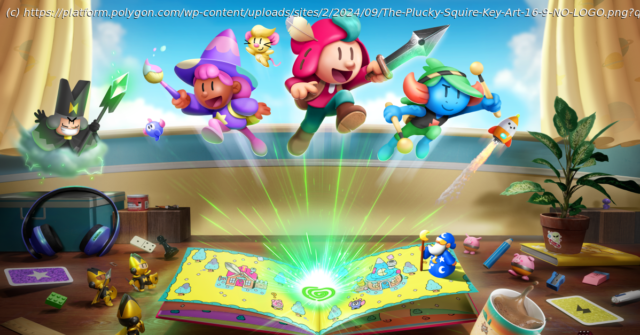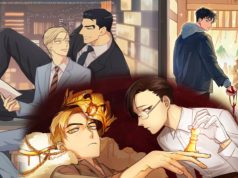The well-crafted adventure is a game like Zelda without the combat or puzzles, in 2D or 3D animation, to work as well as Nintendo’s adventures.
In The Plucky Squire, an all-ages adventure about a swashbuckling hero who steps out of the pages of his storybook, the currency you collect is not gold but Inspiration, represented by scattered, tinkling light bulbs. Jot, the hero, fights with a sword shaped like the nib of a fountain pen as he battles to stop the evil wizard Humgrump — who has just become aware he lives in a fiction, and is the villain of the story — from expelling Jot from the narrative using his “meta-magic” and condemning their book to irrelevance. If there’s no hero, the book will gather dust on a shelf, and inspire no more young minds like that of Sam, the book owner and Plucky Squire fan into whose cluttered room Jot sometimes emerges.
And how does Jot spend the Inspiration he collects? Upgrading his sword attacks. It’s a notably uninspired choice, and, unfortunately, a typical one in a game that explores a charming and inventive premise with plodding, workmanlike, linear, video game logic. The Plucky Squire buys into the inspirational power of children’s literature with well-meaning, sentimental intensity. But developer All Possible Futures doesn’t seem so interested in video games as vehicles for ideas themselves.
Perhaps it’s more accurate to say that the designers seem to have found it difficult to create interesting applications for the ideas that they do have. The Plucky Squire frequently presents novel, perception-bending, fourth-wall breaking concepts. For example, Jot can pick up and swap words on the page, changing the meaning of sentences and the context of the story; a “huge” obstacle becomes “tiny,” a “flooded” area is “drained,” and so on. Elsewhere, Jot can step out of the book and tilt it to move things around, or flip back a few pages to jump around his own story in time and space.
These are great ideas, truly, and they’re begging to be applied in ingenious ways. And yet The Plucky Squire consistently puts guardrails around their use and fails to develop them. Each becomes just one more tool to fit into the sequence of the game’s strictly delineated, cause-and-effect puzzles. These puzzles can take some working out, but even the most involved ones rarely surprise or delight; they’re mostly a case of spotting prompts and figuring out the order in which to fulfill them.






